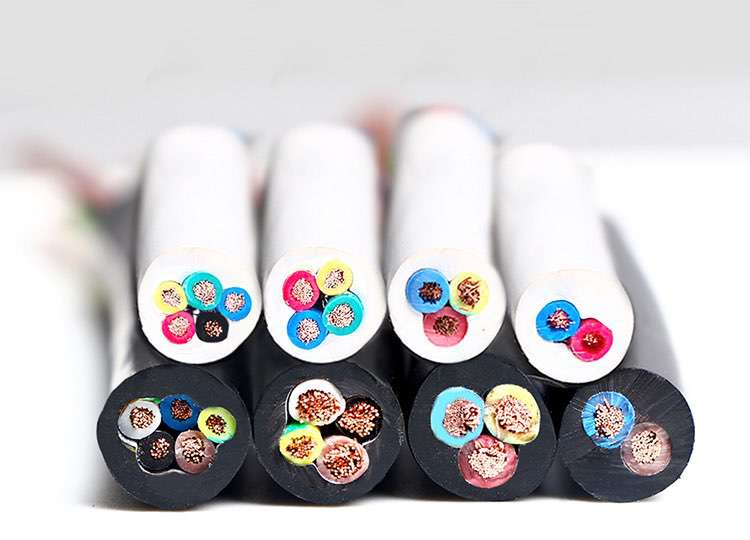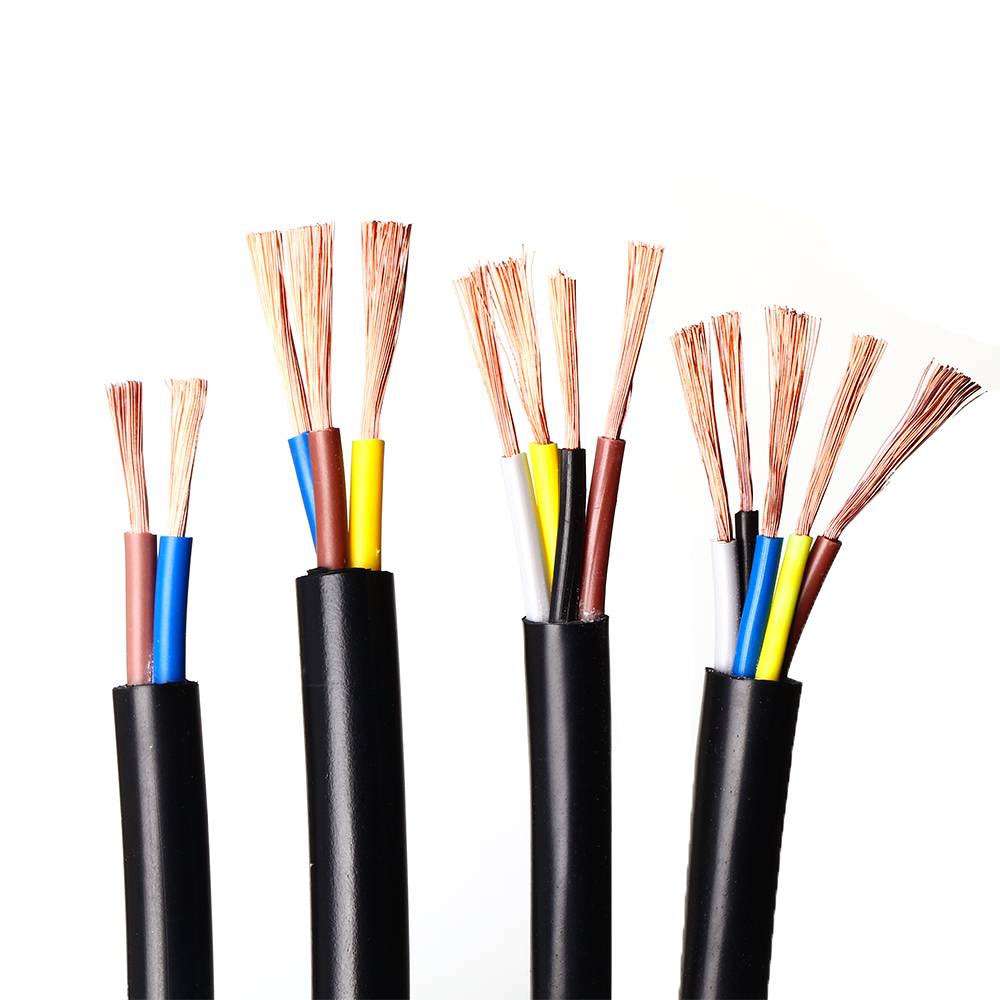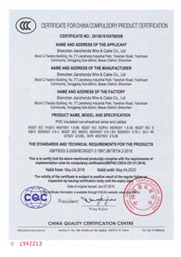 Author: Joey Wan
Author: Joey Wan  November 06,2020
November 06,2020
PVC cable material is composed of polyvinyl chloride resin, stabilizer, plasticizer, filler, lubricant, antioxidant, coloring agent, etc. The withstand voltage and insulation resistance of PVC cable materials are relatively high, but the dielectric constant and dielectric loss are relatively large. Therefore, it is generally mainly used as an insulation layer for low voltage (≤1KV) and medium and high voltage (6~10KV) cables. PVC plastic is also widely used as a protective layer material for wires and cables because of its flame retardant, oil resistance, corona resistance, chemical resistance, and good water resistance. By adding special performance additives or modifiers, heat-resistant (105°C), cold-resistant, oil-resistant, flame-retardant, extra-soft, and non-toxic PVC cable materials can be manufactured separately to meet special wire and cable requirements.
Cable materials are higher performance requirements in PVC formulations, especially electrical insulation, low-temperature resistance, and aging resistance. PVC cable materials can be divided into two types: sheath and insulation. The sheath requires PVC with good heat resistance, while the insulation requires PVC with good insulation. The main points of each component selection are as follows:

1. PVC resin: requires high molecular weight and easy absorption of plasticizers, so the suspension method loose PVC resin is used. In addition, low-grade resins with high purity, less impurities, and less fish eyes should be used. Generally, SG-1 or SG-2 are used. At present, some manufacturers also choose SG-5 resins, but in principle, they are not recommended. At present, due to the lack of resins of Type 1 and Type 2, many cable materials use SG-3 type PVC resin. SG-1 type resin should be used for advanced electrical insulation materials, and SG-2 and 3 types can be used for general electrical insulation materials. For cable materials that require high heat resistance, type SG-1 should be used.
2. Plasticizer: The content of plasticizer is generally around 50PHR, up to 60PHR. Generally, varieties with better heat resistance and electrical insulation are selected, such as DOP, DOS and DOA can be added to improve cold resistance, and trioctyl trimellitate can be added to improve heat resistance. Several plasticizers are often used in combination, and the general plasticizers in the actual cable material formulation are used in combination.
For cable materials with high electrical insulation, phosphate ester can be used as the main plasticizer, and phthalate ester can be used as the main plasticizer for general-purpose grades. Chlorinated paraffin can improve electrical insulation. Both fatty acid esters and epoxy plasticizers can improve the low temperature resistance of cable materials, and the latter is also very resistant to weather.
The volatility resistance and heat resistance of the plasticizer are the key to the high temperature resistance of the cable material. For cable materials with a temperature resistance of 70°C, plasticizers such as diisodecyl phthalate (DIDP) or diisononyl phthalate (DINP) can be used. For cable materials with a temperature resistance of 90℃, diundecyl phthalate and ditridecyl phthalate should be used. For cable materials that can withstand high temperatures up to 105°C, plasticizers with higher heat resistance, such as trioctyl trimellitate (TOTM), should be used.
The acid value of the plasticizer has an impact on the electrical insulation and heat resistance of the cable material, and a plasticizer with a smaller acid value should be selected. The molecular weight and flash point of the plasticizer have an impact on the heating loss of the cable material. A plasticizer with a higher flash point and larger molecular weight should be selected, such as dibutyl phthalate and dioctyl phthalate. Compared with dioctyl adipate and dioctyl sebacate, the former has a small molecular weight and a low flash point, so the heating loss is also greater.
When choosing a plasticizer, its plasticizing efficiency should also be considered. Selecting plasticizers with higher plasticizing efficiency can reduce the amount of plasticizer in the formula. The amount of plasticizer is related to insulation performance, and reducing the amount of plasticizer is beneficial to improve insulation performance.
3. Stabilizer Basic lead salt is used as the main stabilizer. Generally, a variety of stabilizers are used together to play a synergistic effect to improve thermal stability. The combination of tribasic lead sulfate and dibasic lead phosphite can give consideration to heat and light stability. The main stabilizer for high temperature resistant cables uses dibasic lead phthalate with good heat resistance. Most foreign formulas are lead-free and cadmium-free to prevent lead and cadmium poisoning. At present, composite lead stabilizers have been widely used in PVC cable materials, and the addition amount is 4~6PHR. Calcium/zinc composite stabilizers are often used in environmentally friendly cable materials. Adding antioxidants to the formula can inhibit the thermal oxidative degradation of PVC. The antioxidant can be bisphenol A.
4. Lubricant: Due to a relatively large amount of plasticizer, the requirement for internal lubricant is not very high. Lubricant is mainly to improve the surface brightness of the cable material. Metal soaps, stearic acid and paraffin wax are often used, and the addition amount is about 1PHR.
5. Filler: Adding filler to the cable material can improve the electrical insulation performance, heat resistance performance and reduce the cost, but too much use will cause the formability and cable material performance to decline. In order to improve the insulation, in the insulation-grade cable material, Zhongke uses calcined clay (electrical grade) as a filler. Calcium carbonate can be used as filler for sheath (layer) cable material.

JZD Cable is a professional cable technical team will answer all kinds of questions for you, and a professional sales team will quickly answer your questions and quotes. Our customers are all over the world.
